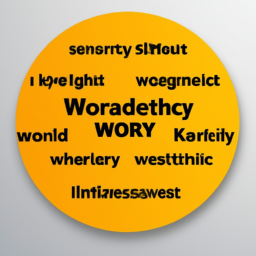Uncovering the Mystery of Keyword Difficulty in SEO
What Is Keyword Difficulty In Seo
What Is Keyword Difficulty In SEO?
It's no secret that keywords play a pivotal role in organic search engine optimization success. But, before you launch into an exhaustive exploration of how to leverage keywords, it's essential to understand what keyword difficulty is, and how it can impact the effectiveness of your SEO strategy in the long run.
Historical Context
The concept of keyword difficulty dates back to around 2002, when search engines began implementing algorithms that measured not only the exact terms included in a query, but also the relevance of those terms to the content being presented. Since that time, search engine algorithms have evolved to consider an even wider range of factors in the process of ranking content on the SERP.
Key Milestones
The Google search engine remains the leader in terms of market share, and in the years since its rise to prominence, it has steadily adapted its algorithm to successful assess the quality of content according to various key metrics, such as keyword complexity. This algorithm update, aptly known as Hummingbird,' is responsible for much of the increased difficulty in using keywords for SEO purposes.
Popular Trends
As the difficulty of keyword-based SEO increases, marketers have responded by reevaluating the content landscape. It's not enough to simply target high-volume search terms and hope for the best. In the modern era, content needs to provide real value to users in order to be successful. To that end, many marketers now focus on producing plenty of quality content around a given central idea or theme, as opposed to targeting a few high-value search terms.
Potential Pitfalls
When focusing on a theme-based SEO strategy, it's important to be aware of any potential pitfalls. For instance, if you fail to create a diverse mix of content that covers applicable topics from multiple angles, you risk creating a shallow, surface level approach to SEO that won't be enough to outrank competitors.
Insights
The evolution of keyword difficulty has had a major impact on the SEO landscape. Marketers need to approach keyword optimization from a broad, theme-centric perspective if they're to produce successful campaigns over the long-term. At the same time, it's important to consider any potential pitfalls that come along with a theme-driven content strategy, such as shallow coverage or an overly broad approach.
Closing Remarks
Although the complexity of SEO has increased in recent years, marketers can leverage that complexity to their advantage. By taking a broad, theme-based approach to keyword optimization, marketers can ensure that they produce content that resonates with target audiences and offers the highest value for organic search visibility.

